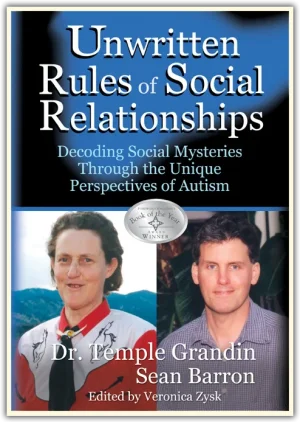Asperger's: Are You Thinking What I'm Thinking??
"It just doesn't FEEL like you GET how I'm feeling..."
Have you ever heard this from a loved one?
Adults with Asperger's in relationships often hear similar complaints from their partners. Yet highly intelligent Aspies often find ways around this effect in work and other settings. What is it about intimate relationships which magnifies this effect, and what can Aspies do about it?
Adults with Asperger Syndrome are well known to have challenges with social interaction. Often, even long after the obvious signs of these challenges are gone, the adult Aspie often continues to "feel different". But they may be missing their own successes by focusing on the differences, rather than the similarities, between theirs and the social interaction outcomes of NTs.
It's often thought that these typical "social deficit symptoms" stem from so-called "mind-blindness" -- an inability to express a "theory of mind", or to grasp what other people may be thinking, feeling and intending. Yet did you know that adults with Asperger's, who are often highly intelligent, routinely pass tests designed to evaluate theory of mind?
In 2009 a team led by Uta Frith, of University College, London, and Atsushi Senju, of Birkbeck College, London, tracked the eyes of people with Asperger's while they took part in a standard test of theory of mind. The results were surprising.
The test, known as the Sally-Anne False Belief Task, works like this:
One character, Sally, places a marble in a basket and leaves the room. In her absence, another character, Anne, moves the marble to a box. When Sally returns, children are asked where she will look for her marble. If children understand that Sally's actions will be based on what she believes to be true, rather than the actual state of affairs, they should answer that she will look in the basket, rather than the box. This correct answer requires the child to predict Sally's behavior based on her now false belief.
Neurotypical children aged 4, and children with Down's syndrome, pass this test, while children and adults with autism spectrum disorders generally do not. Adults with Asperger's pass it -- but Professor Frith's study shows that their success may be due to a very different mechanism.
The team asked adults with Asperger's, and neurotypical (NT) adults, to take the Sally-Anne task while their eye movements were tracked. Both groups got the task right when assessed verbally, but their eye movements told a different story.
The NTadults generally took their first glance towards the correct place -- the basket where Sally thinks her marble is -- in anticipation that that is where she will look. However, members of the Asperger's group looked equally often at both the box and the basket before making their choice. They did not seem to have a spontaneous understanding of the right answer -- the direction of their first glance was a matter of chance.
The implications of this are fascinating. It may be that people with Asperger's do have difficulties with theory of mind: unlike those with NT brains, they lack the ability to jump straight to the right decision, almost as a matter of instinct. What they seem to do instead is to work out other people's beliefs and intentions by means of logical reasoning.
The finding is also encouraging news for therapy. Theory of mind in itself, it seems, can be learned. That is, the same results can be attained via "intuition" AND logic.
Adults with Asperger's may arrive at social conclusions via logic, but feel exhausted after their success. It may be true that social interactions never do take on the intuitive, fluid quality many adults enjoy when communicating.
Perhaps when it comes to the social interactions of adults with Asperger's the most important part may not be the means, it may be the end itself. If you have Asperger's, you may benefit from focusing less on how you operate differently, and more on the results you achieve or want to achieve.
Chances are you're not coming across as poorly as you think.
Link: http://www.aspiestrategy.com/2010/01/aspergers-are-you-thinking-what-im.html
This sort of explains the problems I have interacting with other people.
I am curious though, if they have ever crafted such a test that gauges how we understand what other people feel, as opposed to what they are thinking. Despite the common misconception that Aspies/Autistics lack empathy, we actually have unimaginable empathy. So much so, that we don't know how to cope or what to do with it. Other times, we just don't understand that is what we are feeling and mistake it for our own feelings, and react as such.
NOTE: If you have any questions or comments. Feel free. I'm pretty open.
Last edited:

